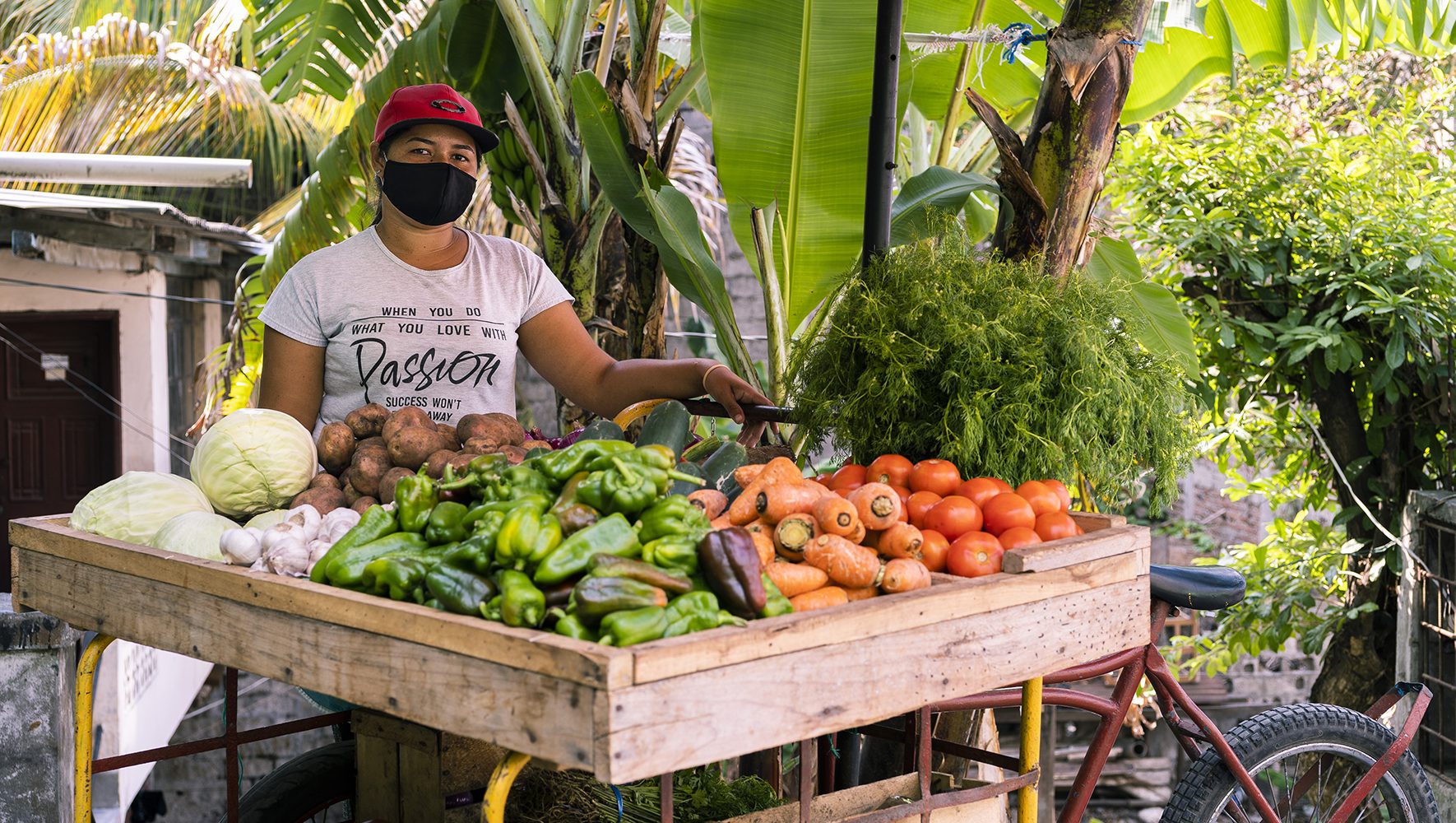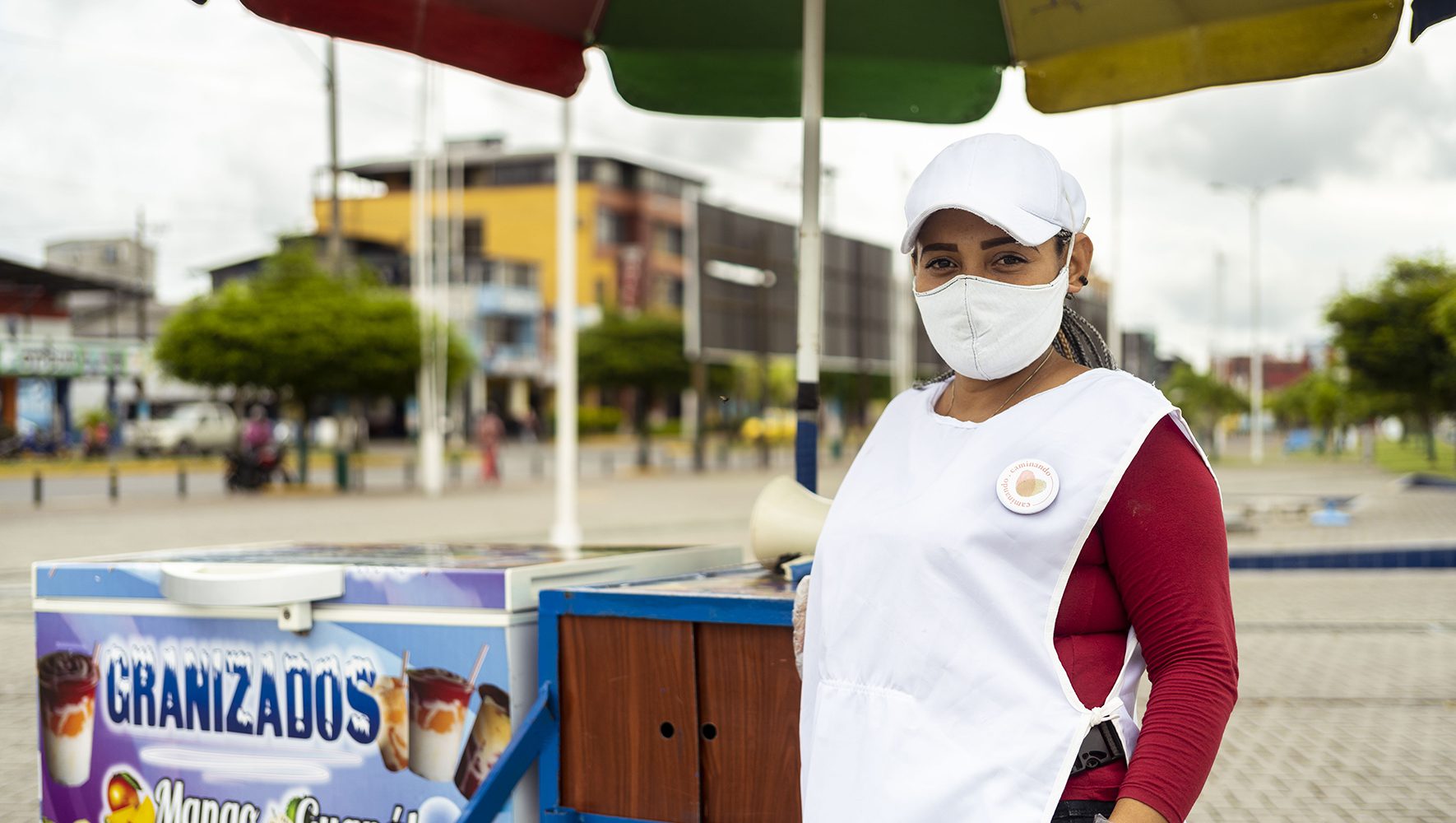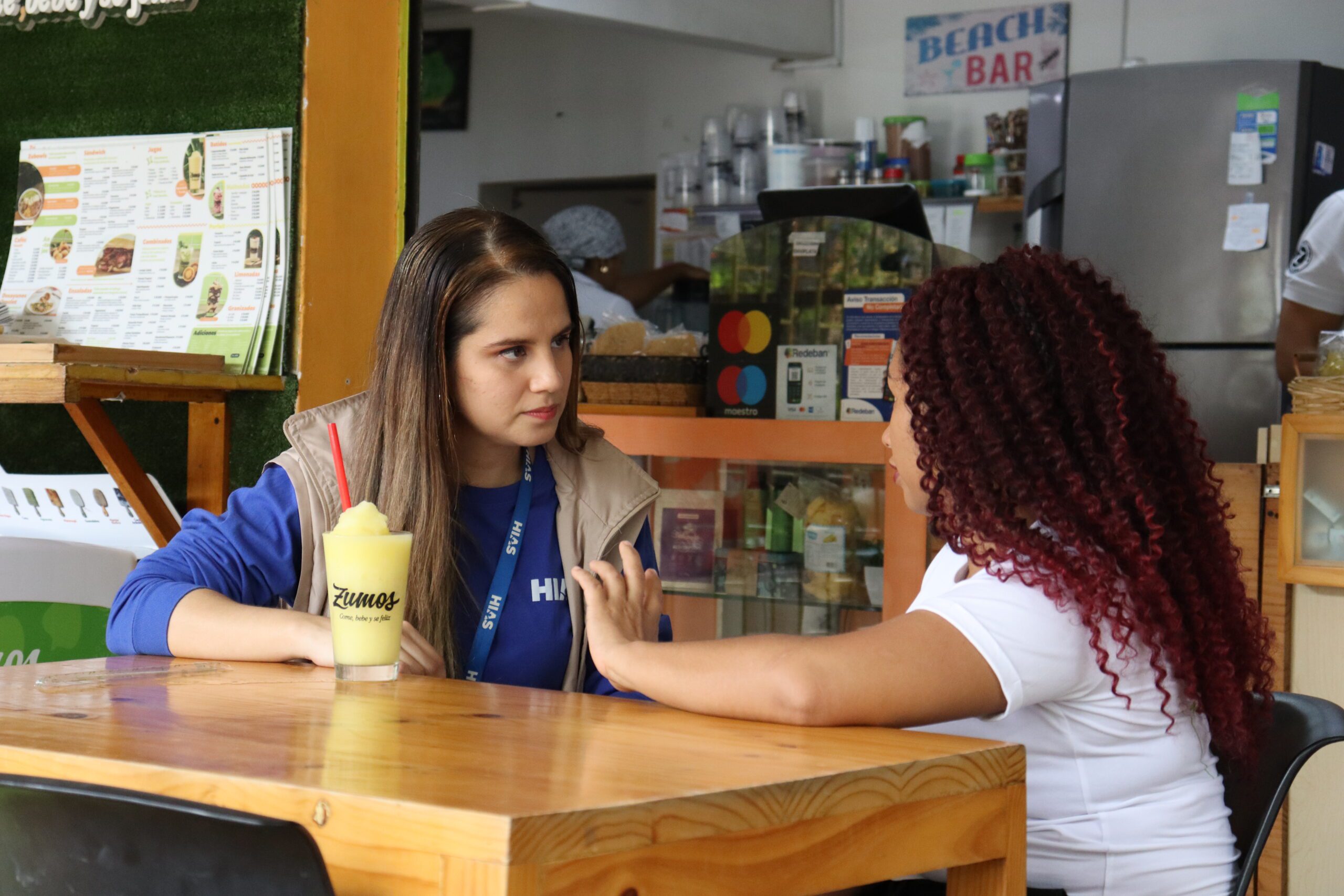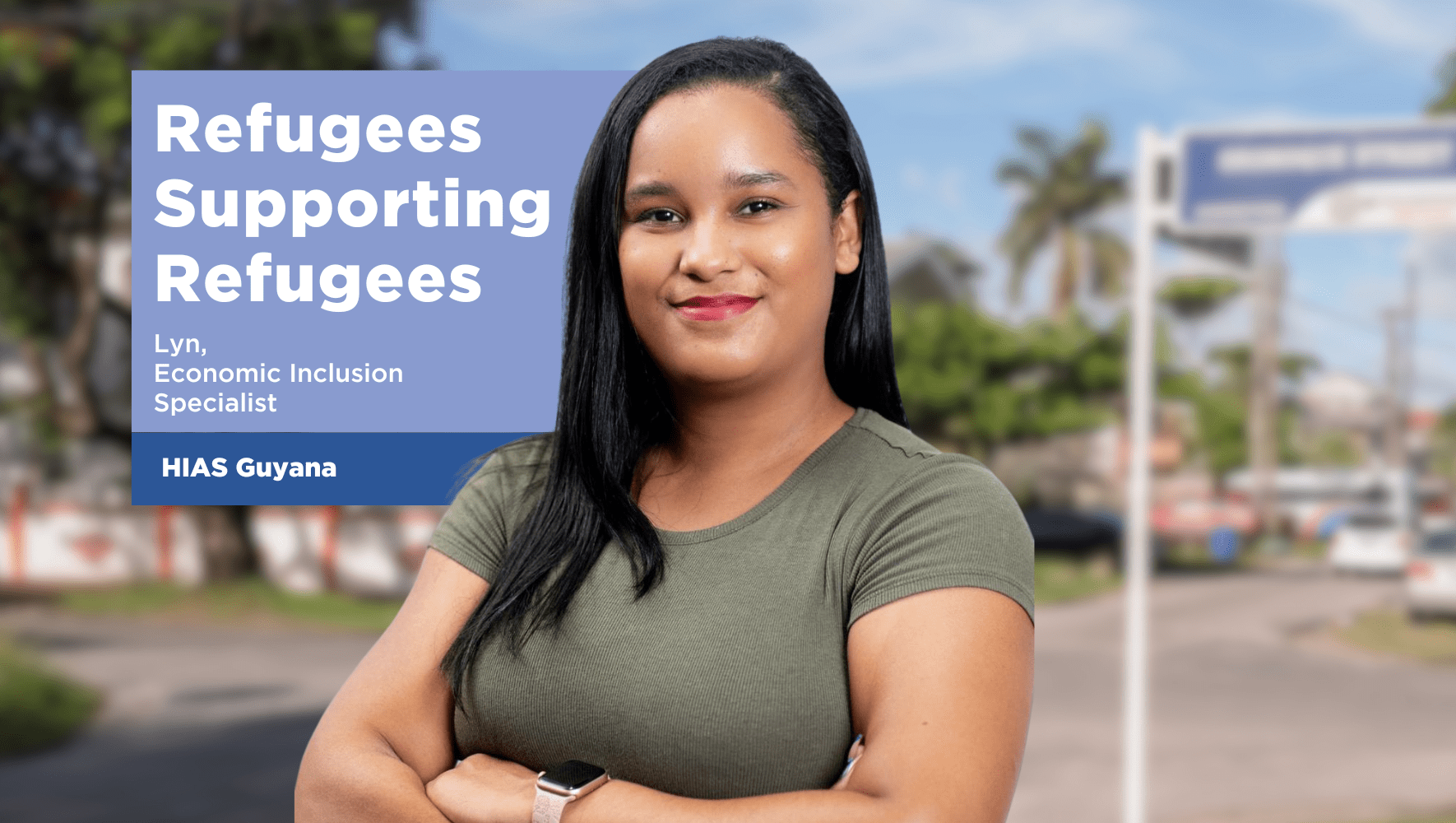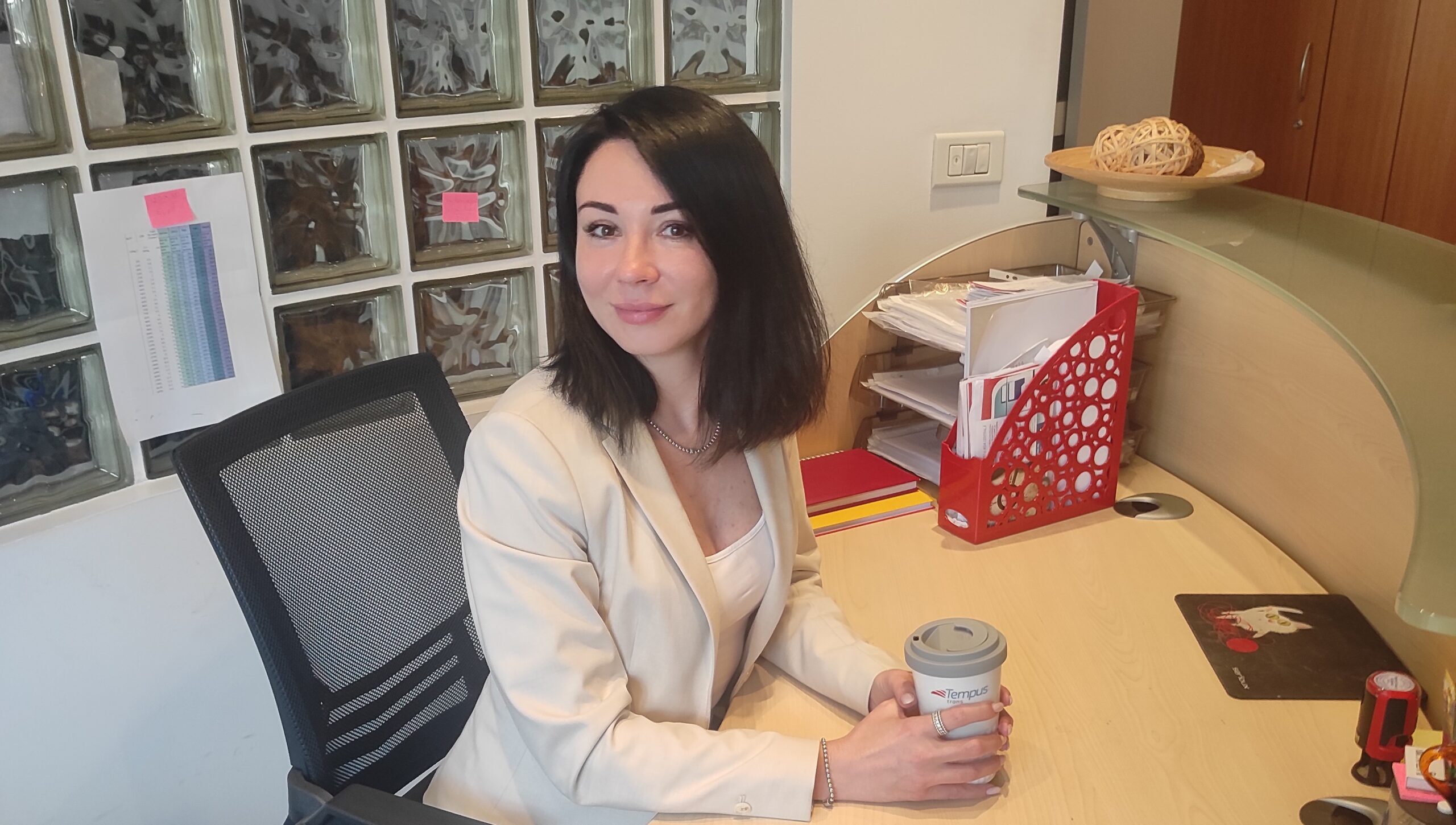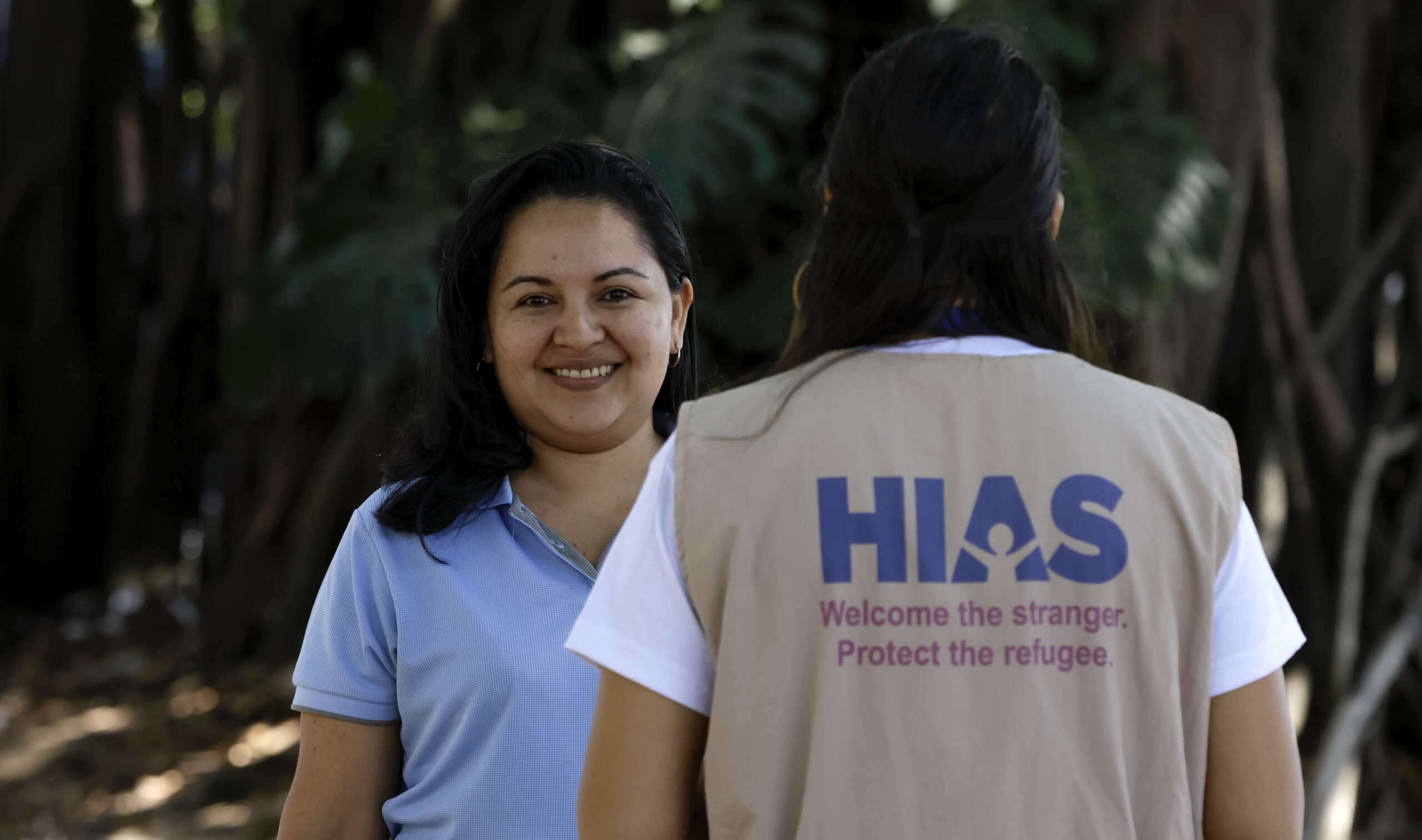No to GBV, Yes to Economic Empowerment
By Sharon Samber
HIAS.org
Apr 14, 2021
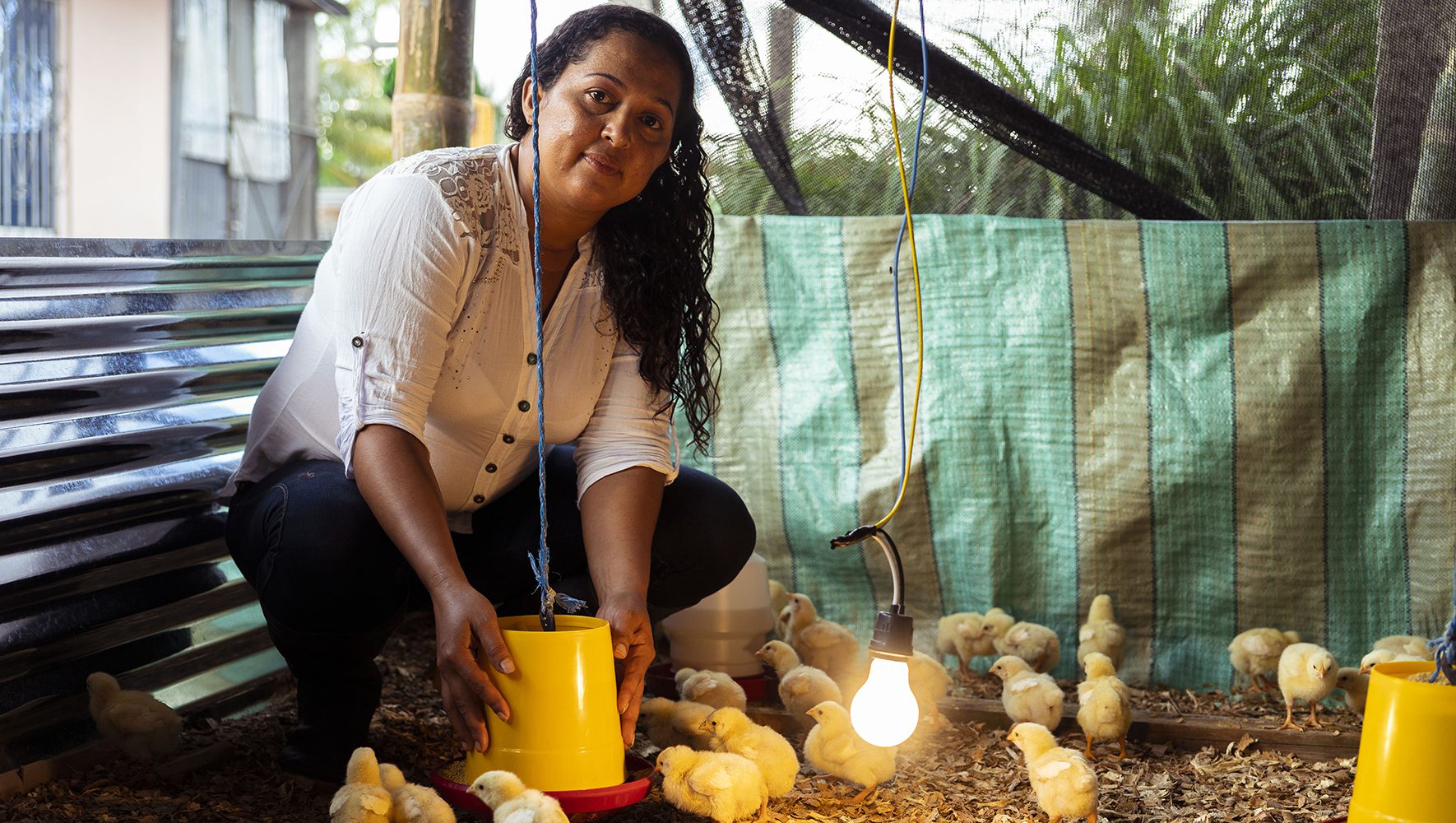
Marielis, a Venezuelan woman who fled her country and her violent partner, received training through the Caminando project. She says her dream is to have a successful business and bring her parents to Ecuador. (Luis Felipe Camacho)
Walking should be easy, but you have to be on your feet to do it. For some refugees, getting back onto your feet is tricky, but that’s what the project Caminando, or Walking, intends to do.
For more than half a year there has been a close collaboration in Ecuador between HIAS and UN Women on the Caminando project that promotes economic empowerment and women’s rights as an effective strategy to eliminate gender-based violence, or GBV. UN Women promotes gender equality globally and works for the elimination of discrimination against women and girls and the empowerment of women
The pandemic has caused many new problems for women: loss of employment; increase in economic dependence; overload of home care tasks; and increased risks of GBV. Among the groups most seriously affected by the situation are migrant and refugee women. With the support of the U.S. State Department’s Bureau of Population, Refugees, and Migration, HIAS and UN Women have put together this project to fuse the critical skills of GBV prevention and economic inclusion programming.
“The main objective of the project is the economic empowerment of women, who are at risk or who are survivors of sexual and gender-based violence, to ensure that they can truly feel empowered and that they can develop their livelihoods and be successful,” said Sabrina Lustgarten, HIAS Ecuador’s country director.
Indeed, the goals of the project were not only collective reflection on self-esteem, sisterhood, and resilience, but also empowerment that comes with financial autonomy. Promoting community strategies for women to break the cycles or environments of violence helped link the prevention of GBV and economic empowerment, and HIAS staff feel they will help transform the social, economic, and community inclusion of refugee and migrant women.
The Caminando project has so far helped more than 1,500 Colombian, Venezuelan, and Ecuadorian women to develop their business ideas, gain access to technical and vocational training, and get seed capital to start their own businesses. The refugee women learn together with their Ecuadorian counterparts from host communities on the northern border of Ecuador.
Marielis, a Venezuelan single mother of three living in Sucumbíos, decided she had to leave Venezuela after she was threatened by the father of her last baby. Since receiving the training in the Caminando project, Marielis feels she has changed a lot.
“My business plan includes chicken farming — I presented the proposal, went to many training sessions and got the seed capital,” Marielis said. “I am looking for a house that has a large backyard to build a bigger shed to have 200, 300, 400, 500 chickens, so my business can grow every day. I feel like an empowered woman now.”
For UN Women and HIAS the nexus between economic empowerment and the prevention of GBV is crucial.
“This combination contributes to women having a livelihood to raise their family, have a decent life, and empower themselves financially,” said Lustgarten.



